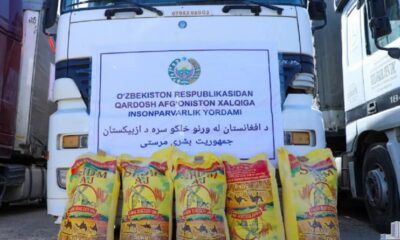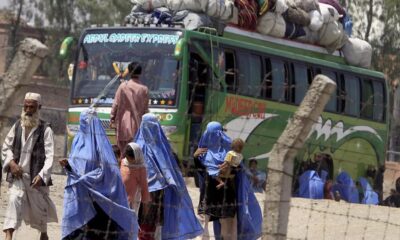Latest News
Leftover US military equipment in Afghanistan a ‘risk’ to Pakistan’s security
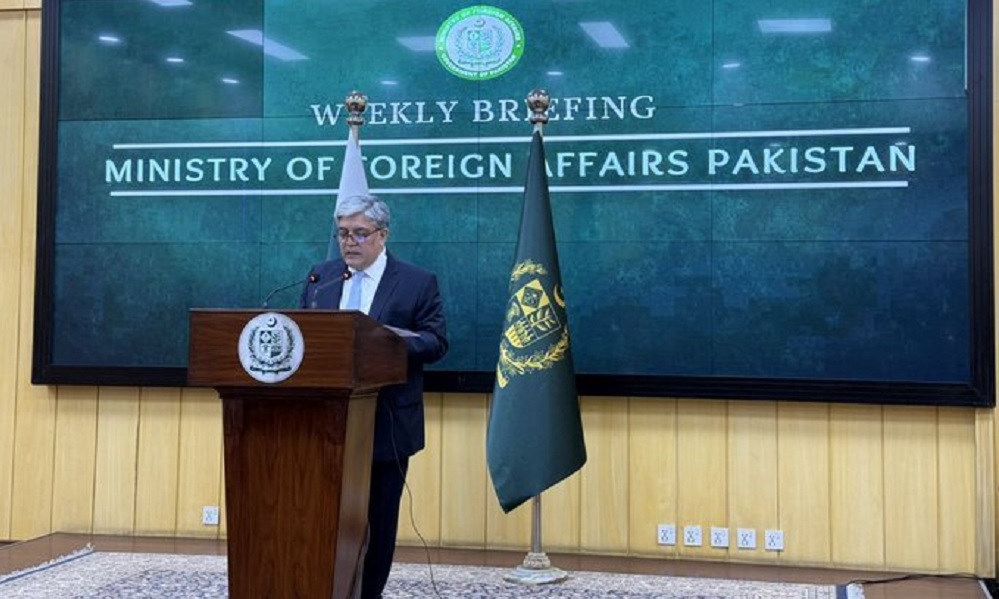
Islamabad on Wednesday expressed concern that the US military equipment left behind in Afghanistan is a serious threat to Pakistan’s security.
A day before his inauguration as US president, Donald Trump spoke about America’s leftover weapons in Afghanistan. He said if the Islamic Emirate wants US aid, Afghanistan should return the weapons.
Responding to Trump’s statement, Pakistan foreign ministry’s spokesperson Shafqat Ali Khan noted: “The presence of US advanced weapons in Afghanistan, left behind in the aftermath of the withdrawal of its troops in August 2021, has been an issue of profound concern for the safety and security of Pakistan and its citizens.
“These weapons have been used by terrorist organizations, including the TTP (Tehreek-e-Taliban Pakistan), to carry out terrorist attacks in Pakistan. We have been repeatedly calling upon the de facto authorities in Kabul to take all necessary measures to ensure that these weapons do not fall into the wrong hands,” he added.
Reports suggest that the US left weapons in Afghanistan worth $7 billion.
The Islamic Emirate, however, has said that all military equipment left over from the US is under the control of the government and no group or individual has access to the stockpile.
Latest News
Needy families in Nangarhar receive Ramadan aid from Bayat Foundation
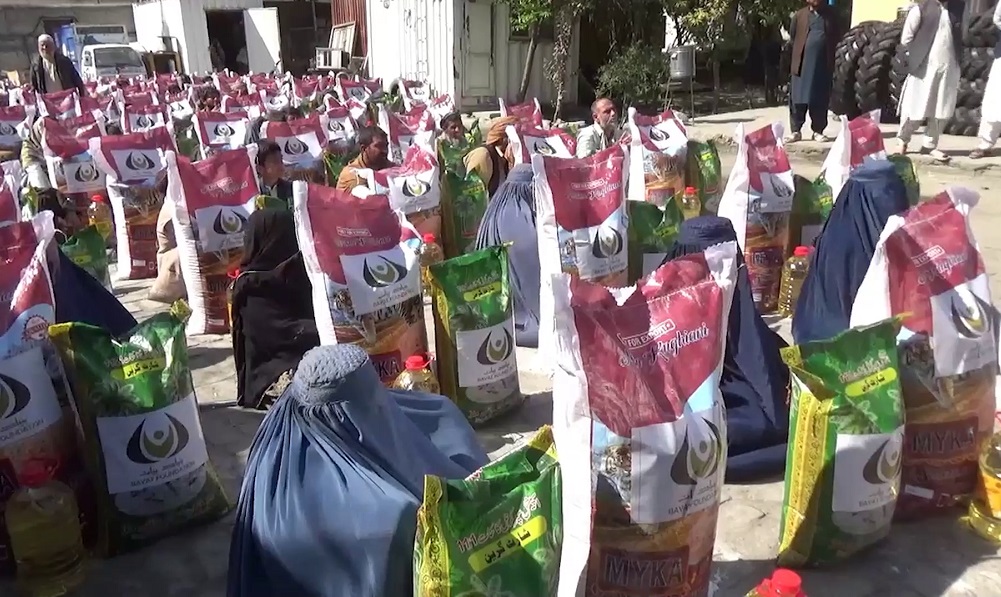
On the occasion of Ramadan, Bayat Foundation delivered food aid to dozens of needy families in Afghanistan’s eastern province of Nangarhar this week.
The organization’s officials said that the aid packages include flour, rice, and cooking oil, which was distributed to the needy after a transparent assessment.
“Bayat Foundation helps thousands of families across Afghanistan every year. Fortunately, today this Ramadan aid was distributed to hundreds of families in Jalalabad. This aid includes flour, rice, and cooking oil,” Attaullah Sahil, a representative of Bayat Foundation in Nangarhar, said.
Appreciating Bayat Foundation’s assistance, officials of the Nangarhar Department of Economy called on other charities to help the needy during the holy month of Ramadan.
“These families are very deserving families who were selected after conducting a survey in the presence of representatives of the Department of Economy and Bayat Foundation. All families are deserving, and they include widows, the disabled and the poor,” Mohammad Asif Rahmani, a representative of the Nangarhar Department of Economy, said.
Recipients welcomed the Ramadan aid from Bayat Foundation, saying that those in need require more help.
Haider, an aid recipient, said: “We are very poor people. There are no job opportunities. Thank you very much to Bayat Foundation for helping us.”
Mohammad Zaman, another aid recipient, said: “During this Ramadan, I was facing difficulties. I could not find sustenance. Bayat Foundation helped us. May God help it.”
Bayat Foundation has helped the needy not only during the holy month of Ramadan, but also during natural disasters, and has continued to cooperate with government institutions in various sectors, especially health and education.
Latest News
IEA controls power in Afghanistan, security prevails: Araqchi
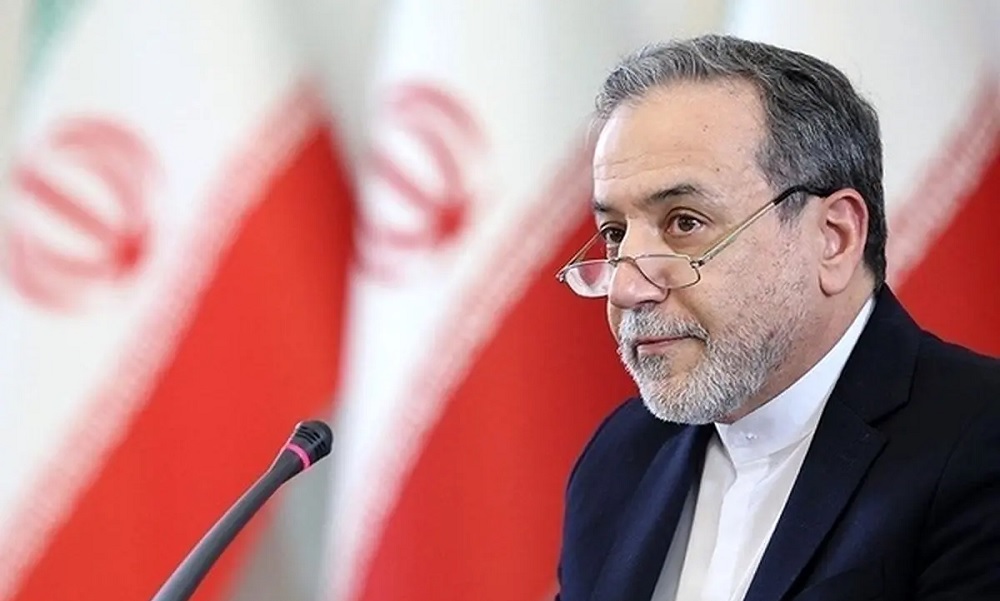
Iran’s foreign minister, Abbas Araqchi, has said that the Islamic Emirate controls power in Afghanistan and security prevails across the country.
Speaking in an interview with Khabar Online, Araqchi said that before the Islamic Emirate took over, different parts of Afghanistan would be governed by different groups.
“The reality is that now there is a power in Afghanistan that has consolidated its rule over the past three and a half years, and unlike in the past, when every corner of Afghanistan was in the hands of different people, this is not the case now. Security and rule prevail. We must address the issues and resolve them for our national interests,” Araqchi said.
The Islamic Emirate welcomed the remarks saying that it indicates an understanding of the realities in Afghanistan.
“This actually means a correct understanding of the realities in Afghanistan. It is a fact that there is a single political governance in Afghanistan that has complete control over Afghanistan,” Hamdullah Fitrat, deputy spokesman for the Islamic Emirate, said.
Araqchi also added in his interview that there are issues in Afghanistan that are related to Iran’s national interests, so he traveled to Kabul to discuss them with the officials of the Islamic Emirate.
He mentioned water rights, presence of Afghan refugees in Iran and Daesh as issues that need to be discussed between the officials of the two countries.
The Iranian diplomat said that Tehran, like other countries, has not recognized the Islamic Emirate, but despite sanctions, trade is taking place between the two countries in high volumes.
Separately, Deputy Prime Minister for Administrative Affairs, Abdulsalam Hanafi, said in a meeting with the acting ambassador of Afghanistan to Iran recently that Afghanistan and Iran have long-standing religious, historical, cultural and economic relations, and the embassy officials should make every effort to strengthen them.
Latest News
Uzbekistan sends essential food aid to Afghanistan
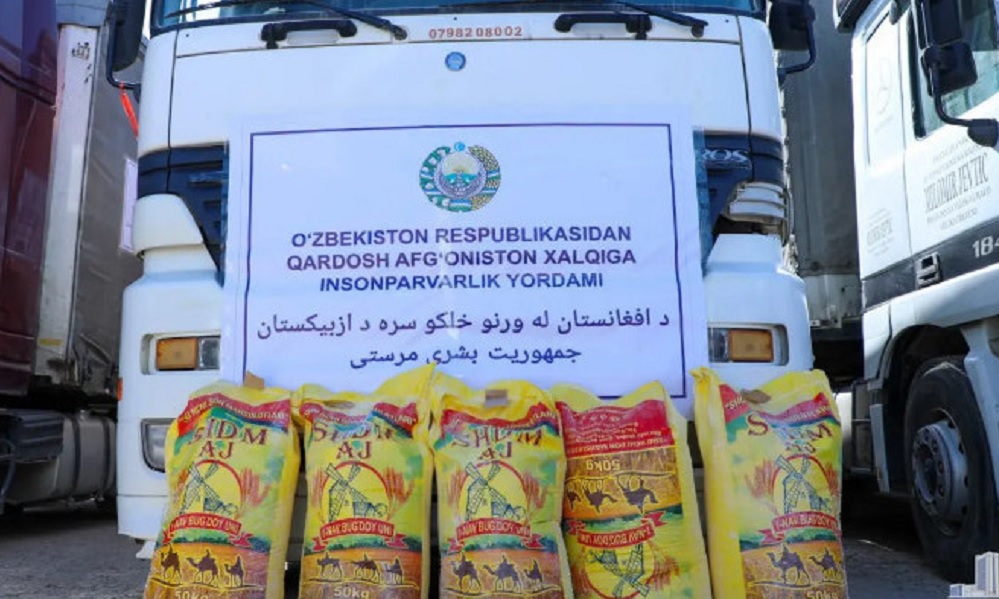
Marking the new solar year, 1404, and the holy month of Ramadan, Uzbekistan this week delivered almost 200 tons of food aid to Afghanistan via Balkh province.
This is in line with Uzbekistan President Shavkat Mirziyoyev’s directive that humanitarian aid be sent to Afghanistan, Kun.uz reported.
The essential food items were handed over in Hairatan border town in a ceremony attended by Uzbekistan’s Special Representative for Afghanistan Ismatulla Irgashev; Surkhandarya governor Ulugbek Kosimov; representatives from relevant ministries; Balkh provincial governor Muhammad Yusuf Vafo; and other officials from both countries.
The aid package consists of flour, wheat, pasta, vegetable oil, sugar, instant meals, red beans, and mung beans.
Additionally, a bilateral meeting was held in Mazar-e-Sharif, where discussions focused on advancing future cooperation. During the talks, special attention was given to the construction of the Imam Bukhari Mausoleum in Afghanistan, a project supported by Uzbekistan.
Afghan officials expressed gratitude to the president and people of Uzbekistan for their assistance, Akipress reported.
At the end of December, Uzbekistan sent humanitarian aid containing food and medicine to Afghanistan, as well as a “health train”.
Uzbek doctors conducted free medical examinations of the population in Balkh province between December 25 and December 30.
-

 Latest News5 days ago
Latest News5 days agoAfghan prisoners in Iran sent home
-

 Latest News5 days ago
Latest News5 days agoAfghanistan ranks last in World Happiness Report
-

 Regional5 days ago
Regional5 days agoMacron and Saudi Crown Prince discuss Gaza, Ukraine peace process
-

 World5 days ago
World5 days agoTrump, Zelenskiy pledge in phone call to work for end to war in Ukraine
-

 Latest News4 days ago
Latest News4 days agoPakistan once again urges IEA to act against militants
-

 Latest News5 days ago
Latest News5 days agoKhyber Pakhtunkhwa chief minister opposes military operations in the province
-

 Sport3 days ago
Sport3 days agoAFC Beach Soccer: UAE thrash Afghanistan 7-1 in opener
-

 Regional4 days ago
Regional4 days agoAt least 91 killed in Gaza as Israel abandons ceasefire, orders evacuations








